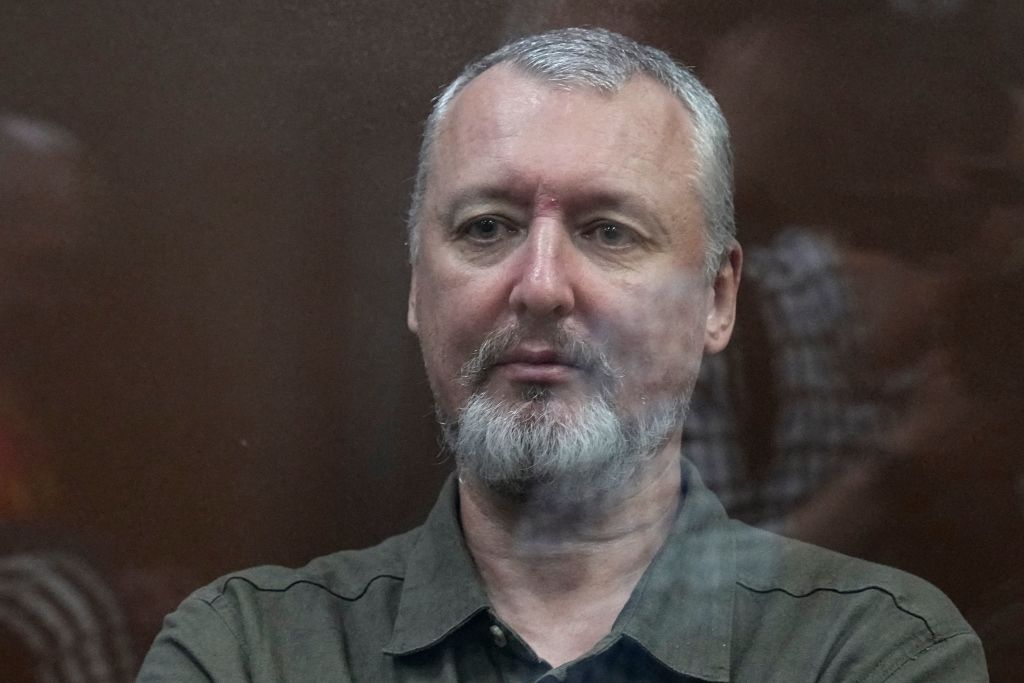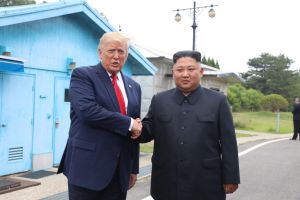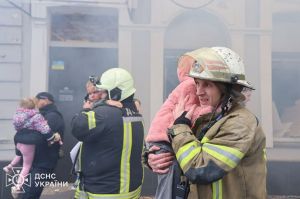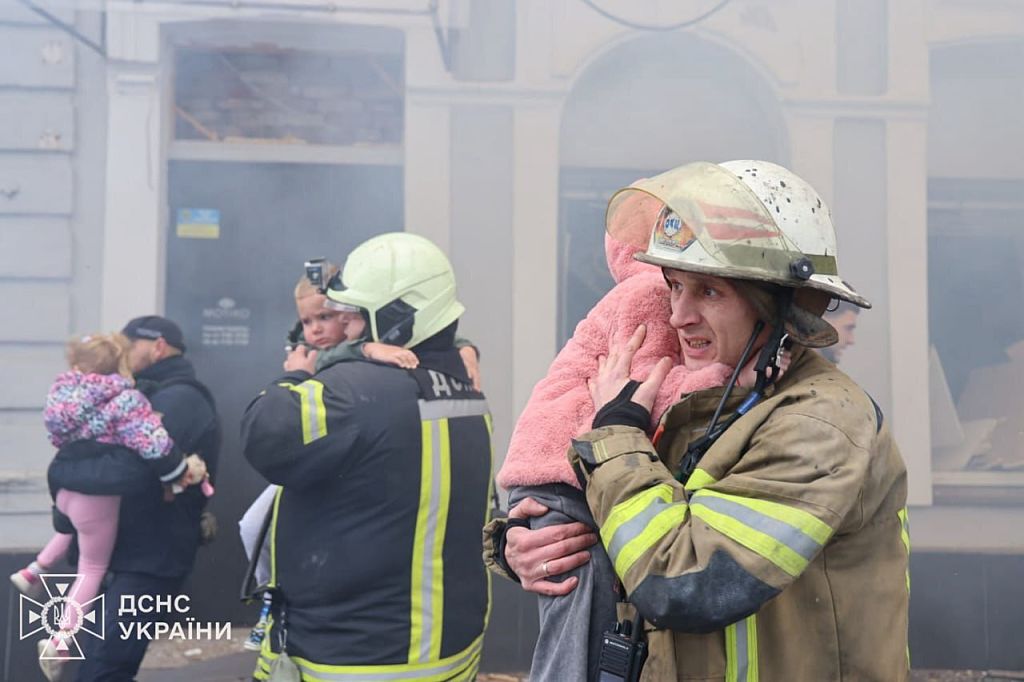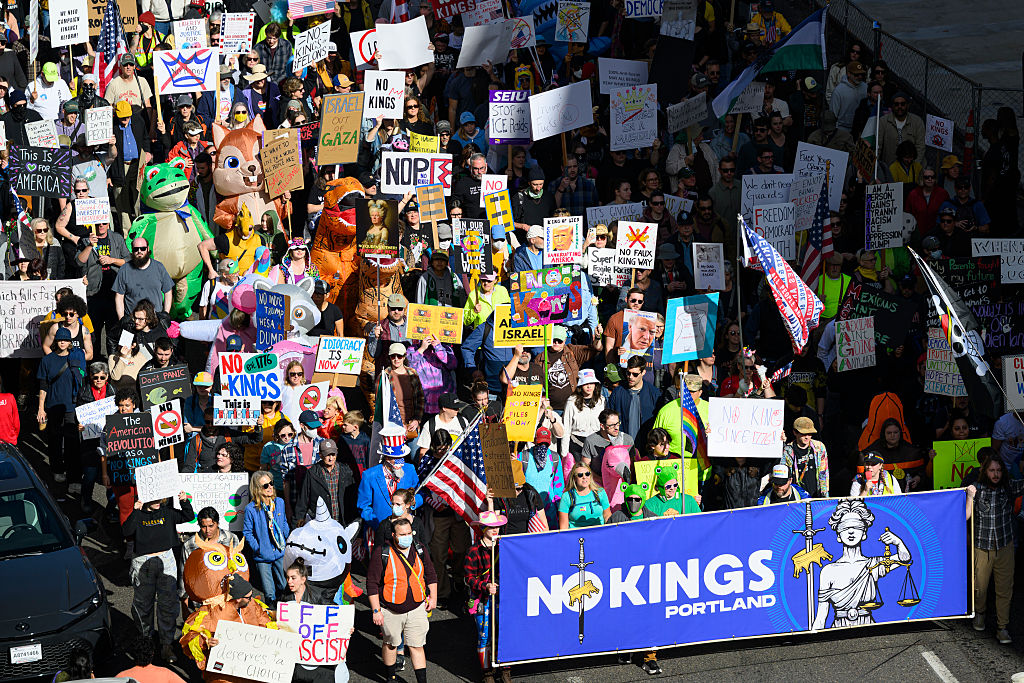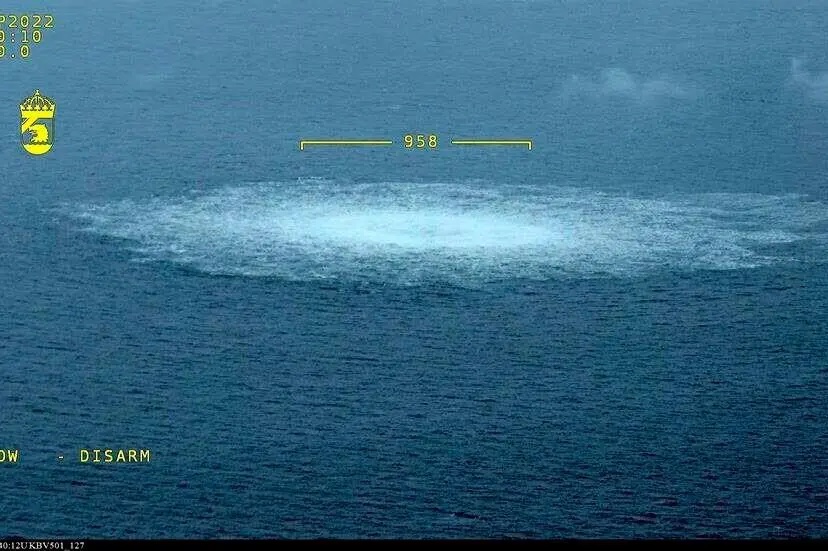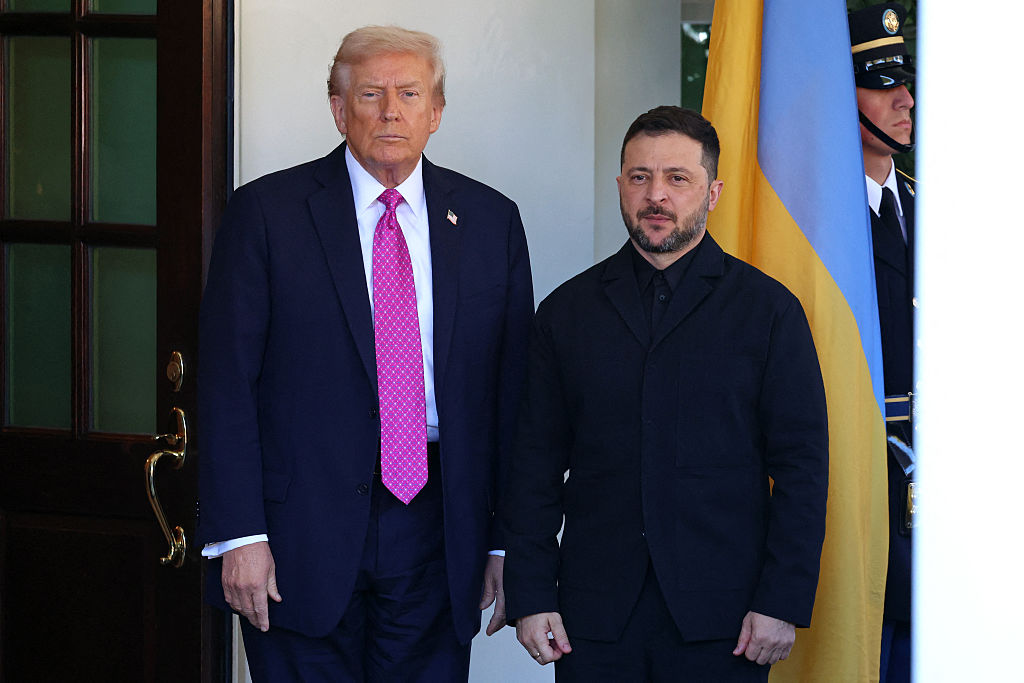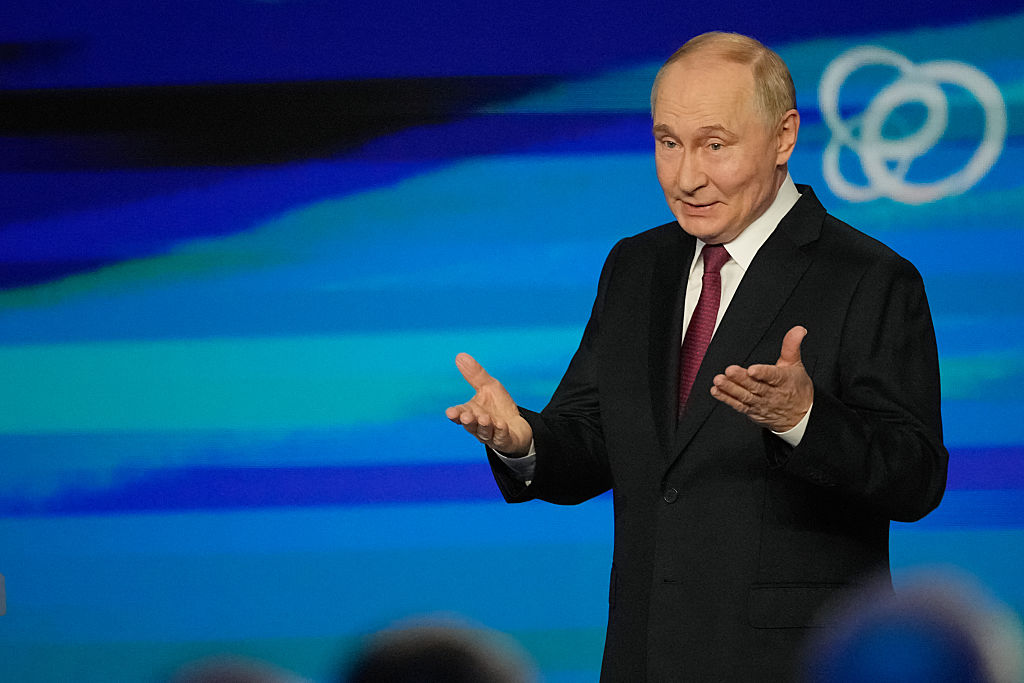With the reported arrest on Friday of Igor Girkin (AKA “Strelkov” or “Igor the Terrible”) the career of one of the Russia-Ukraine war’s most infamous, larger-than-life characters may finally have hit a dead end. Girkin, the career-killer with the sensitive face and soulful eyes, has played numerous parts in his time: activist, blogger, FSB colonel, executioner, convicted war criminal and eternal thorn in the side of the Russian Ministry of Defense. A self-professed nationalist, and founder member of the “Club of Angry Patriots,” he has consistently lambasted Putin’s “special military operation” for its failures and perceived half-measures, calling repeatedly for martial law and mass-mobilization to avert a likely defeat.
Now, it seems, his antics have been curtailed. His arrest by “representatives of the Investigative Committee” came at 11:30 on Friday morning, according to a Telegram post reportedly from his wife, Miroslava Reginskaya: “I was not at home at that time. Soon, according to the concierge, they took my husband out under arms and took him in an unknown direction… I do not know anything about my husband’s whereabouts and he has not contacted me.” Girkin now stands accused of “inciting extremism,” a conveniently nebulous term that usually just means the Kremlin has taken umbrage and got you in its sights. But for once the expression is apt. If Girkin is not an extremist, the word has no meaning.
To say that over the past eighteen months Girkin has shot his mouth off is sheer understatement. Last September he was predicting a total Russian defeat, calling for defense minister Sergei Shoigu to be executed by firing squad, and pressing for nuclear strikes “to drive 20 million refugees to Europe.” Three months later, after a spell fighting in Ukraine, he passed on the demoralization and bewilderment of the Russian troops: “Soldiers and officers do not understand: in the name of what, for what, and with what purposes they are fighting. It’s a mystery for them.” His unstinting tendency to say the unsayable and remain untouched has had Kremlinologists baffled. Did Girkin have friends in high places, or was he simply too popular with pro-war hardliners to put under direct attack? Certainly his profile in Russia could not be much higher. Even those turned off by him followed his Telegram channel avidly. As the Ukrainian counter-offensive opened last month, a pro-Kyiv Russian friend was downcast at its faltering progress. “Girkin is cheerful today,” he said. “And that’s a very bad sign.”
Recently his attacks moved closer to the Kremlin. After the failed Wagner Uprising on June 25, he sniped at Putin directly, claiming that if the president was unwilling to “take the leadership over the creation of war ready conditions,” it was time for him to step down for someone who could. Still Girkin remained at large, but this week went too far. In an unbelievably reckless — if accurate — post about Putin on his Telegram channel, he raged: “For twenty-three years, the country was led by a lowlife who managed to blow dust in the eyes” of his people. “But the country will not be able to withstand another six years of this cowardly bum in power.” He now faces a five-year term in a Russian jail.
The real mystery is not why Igor Girkin is finally behind bars
Girkin’s arrest is just another twist in a life and career which have stretched credulity, and which the most adept novelist would struggle to make seem plausible. In some ways he is a preposterous figure, a kind of Russian Zelig, forever popping up at crucial moments in history. One can call Girkin many things: thug, psychopath, warrior, shit-stirrer, patriot, buffoon, but one cannot call him boring. Always agitated, always agitating, a twisted idealist endlessly at odds with Russian reality, he called for a return of the country’s monarchy, railed against its liberals and was an ardent proponent of the “Russki Mir” policy, which called for the unification of Belarus, Ukraine and the Russian Federation in one “Russian world.” Ukraine, he said in 2015, had never separated from Russia in his mind, and whatever conflicts took place there he considered a “civil war” inside his country.
He was, it seemed, woefully unsuited to peacetime and always in need of a conflict. Mayhem and violence have followed him throughout his life. Having fought in former Yugoslavia as a young man, he was later reported as playing a key-role in the massacre of 3,000 Bosnian Muslims at Visegrad. In the second Chechen war, he was alleged to have abducted and killed six local men from a mountain village, whose bodies were never found. In one of a series of subsequent emails attributed to him, Girkin explained to a friend that “people we captured and questioned almost always disappeared without trace, without court, after we were done.” From an early age Girkin was clearly a man with blood on his hands, and in no great hurry to wash them.
But it was in Ukraine, after the Maidan Revolution of 2014, where he was to prove most fateful. Having played an active, coercive role in the Crimea annexation that year, he was reputedly dispatched to the Donbas to foment an anti-Kyiv uprising. In this he would prove surprisingly effective, later claiming that without his efforts the eight-year conflict in the region, which claimed 14,000 lives, would never have ignited: “I pressed the launching trigger of war,” he was to boast, claiming that “if our squad hadn’t crossed the border, things eventually would have come to an end as in Kharkiv or Odessa.”
While in Donbas, the Ukrainian government claimed, Girkin was directly responsible for the kidnapping, torture and killing of Ukrainian politician Volodymyr Rybak and nineteen-year-old student Yury Popravko. The government in Kyiv branded him “a monster and a killer,” but in the Donetsk People’s Republic he was appointed, for a few months, minister of defense. His most infamous crime of all took place in July 2014 when, apparently mistaking a Boeing 777 passenger jet flying from Amsterdam to Kuala Lumpur for a Ukrainian warplane, he shot it down, killing all 298 passengers, eighty of them children. “Murderers!” screamed a headline in a leading Dutch newspaper the next day. He was convicted of the crime in a Dutch court late last year and sentenced in absentia to life imprisonment.
Whether the five-year term probably awaiting him in Russia now signals the end of Girkin or turns out to be merely the latest episode in a life of grotesque ups and downs remains to be seen. Given the nine-year sentence meted out to opposition leader Alexei Navalny and the staggering twenty-five-year term for Vladimir Kara-Murza, those five years seem relatively lenient. This of course begs all sorts of questions, as does the timing of his arrest yesterday. The real mystery is not why Igor Girkin is finally behind bars, but why it took the Russian authorities so long.
This article was originally published on The Spectator’s UK website.



